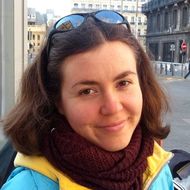Symposium: Typical and Atypical Language Development (TALDS)
September 4th, 2019
Armyanskiy per. 4, c2. Room 205
More information about the event: HERE
Symposium related questions can be addressed here: talds2019@gmail.com
Symposium payment: HERE
Registration fee: 800 roubles (10 euro)
We would like to learn more about you.
Final programme:
TALDS_2019_Program
Poster specification: A0 portrait or A1 landscape
TALDS booklet
Booklet_2019
Organiser

Abstracts
Diagnosing and treating Acquired Childhood Aphasia (ACA).
Mieke W. M. E. van de Sandt-Koenderman, Dr., Rijndam Rehabilitation, Department of Neurorehabilitation, Rotterdam; Erasmus University Medical Center Rotterdam, Department of Rehabilitation Medicine
Abstract:
Acquired aphasia in childhood is a rare condition and the - small - population of children with acquired aphasia is very heterogeneous, which complicates its diagnosis and treatment. ACA differs from adult aphasia in several ways. Adult aphasia is almost always caused by stroke, whereas traumatic brain injury and tumours are the most frequent etiologies in children. Age and language development at onset are important variables. In this presentation, the state of the art in diagnosis and treatment of ACA will be reviewed, as well as our current knowledge on prognosis and recovery patterns. As there is virtually no literature on language treatment for these children, it will be discussed how to use our knowledge on treating adult aphasia to improve rehabilitation of ACA.
From sound to structure: phonetic information in early language development
Barbara Höhle Professor, University of Potsdam
Abstract:
Bootstrapping accounts of language acquisition assume that the child makes use of specific information in her speech input that guide the first steps into structural properties of the ambient language. This talk will review recent research on how segmental and prosodic information from the speech input shape infants’ knowledge about the relevant phonological categories in their language and how the growing phonological knowledge affects the perception and the processing of speech. Data from research across different languages, different populations and different modalities will be presented.
Bilinguals in the crib: Is bilingual early language development so different from monolinguals’?
Núria Sebastián Gallés, Professor, Pompeu Fabra University, Barcelona
Abstract:
How different is the process of language learning in infants exposed to two languages from birth? It was not so long ago when the available evidence pointed to a delay in language learning in bilinguals. At present, there is some controversy regarding fact bilingual exposure may boost some learning mechanisms. In the present talk I will review the empirical evidence on language development in infants exposed to more than one language from birth and how such development differs from monolinguals’.
Russian First Language Acquisition
Irina A. Sekerina, Professor, City University of New York
Abstract:
This presentation is an overview of acquisition of Russian as a first language (L1) conducted outside of Russia (in the U.S. and Europe) in recent years. It will survey selected domains and topics (e.g., phonology, vocabulary, morphosyntax, and narratives) that have driven L1 acquisition research and their application to Russian L1, with special attention to experimental methods. The final part of the talk will speculate on the trends and challenges for the future development of the field of L1 acquisition, including Russian.



